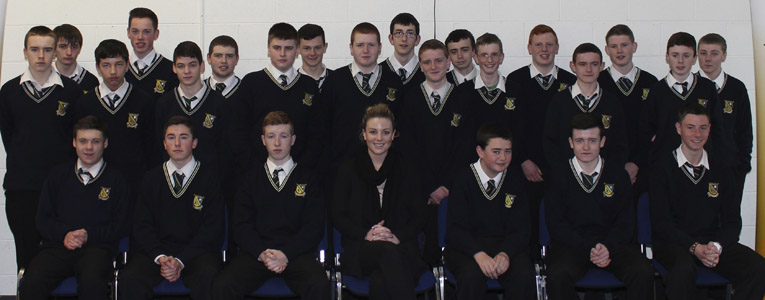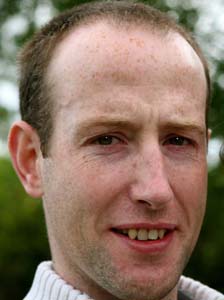Location: Finglas, Dublin, Ireland
Teacher: Mr. Martin McMullan
Student group: 6th Year (age 16-17 years)
School website: www.beneavin.com
Our school is in a working class area of the north-side of Dublin, the capital city of Ireland. There are around 470 students, all boys. The school was founded by an order of Christian Brothers from the De la Salle Catholic tradition and has been in existence for over 50 years.
1) What does the term “Global Citizenship” mean to you?
The students:
Being part of a global society, having a responsibility for the well-being of others in the global community, belonging to the human race of mixed cultures and religions.
Mr. Mc Mullan:
Global Citizenship means for me to realise that we are all connected in the world that we all share. Every action we undertake has an effect throughout the world and therefore we must learn to act responsibly to care for one another and the environment and build a community that we can all thrive in.
2) Why do you think it’s important for young people in Ireland to engage in an exchange programme like this?
The students:
We will have a chance to experience different cultures with different groups. We will see how they live and they will see how we live. It will help to break down stereotypes and promote understanding.
Mr. Mc Mullan:
It is a very liberating experience to meet and get to know people from different parts of the world. Both groups of young people will learn that they share so much in common. They will both enjoy and appreciate the opportunities to make friends and see behind whatever stereotypes which may exist.
3) What would you say directly to the young people in our schools network?
The students:
What do they think of the programme and why are they doing it? We should compare and share ideas. We’d like to know your interests. What do hope to get out of this?
Mr. Mc Mullan:
This is a wonderful opportunity to learn from the life experiences of people in other parts of the world and share your own experiences. Approach everything with an open mind and be prepared to be challenged about your own views and perceptions.
Progress Report 1
ISSUES THEMES 1: GLOBALISATION, DEVELOPMENT, INEQUALITY, INJUSTICE, POWER, CONFLICT
Step 1: Baseline Knowledge
1. How do you define each of the 6 key themes above?
Globalisation How the world is run, how the world is connected, spreading of supplies all over the world, humanity and its effects on the world, the entire world, different cultures in the world, countries coming together under common goal, all countries joining as one, control of the whole world
Development The improvement of something, when buildings are built, developing a country to make it better, inequality in the world, economic progression and bringing up of standards in world, moving forward, the economy doing better, improving, developing infrastructure, schools, jobs
Inequality Uneven treatment, means the difference between things, rich being better off than the poor, rich and poor, unequal rights, someone is better off than another, racism, sexism
Injustice Unfair on people, laws not being just, crimes made out to be a service, nothing being done to resolve crimes, discrimination, unfair trials, people not being allowed to speak their mind
Power “Being the man”, “calling the shots”, when someone has power over someone, the ability to give orders, Obama, global bullying, the ability to create change, government using police on protestors, government
Conflict Trouble between people, war, politics and citizens being used as puppets, growing tension, weapons, fighting, people fighting for their ideas, gangs, arguments
2. Can you give examples of how they are reflected in local issues (in your community and in your country) ?
Globalisation Nothing is locally resourced, people wearing or eating foreign supplies, countries in the south not having a decent standard to living, inter-related companies, Tesco, people eating and drinking things from all over the world, everything is imported
Development No areas or activity for youngsters, uneven GNP, new buildings/shops, more communities, Tesco being built
Inequality How rich people are treated compared to poor, racial abuse, wealthy looking down upon working class, rich and poor areas, people in Blackrock v people in Darndale
Injustice How poor people are unfairly treated, corruption in governments leaving citizens without healthcare and education, people getting away with shootings, homelessness and the way people treat them
Power How local TDs decide what happens in the area, a principal, the government, Gardai abusing power, local drug-dealers, people being told what to do in school
Conflict In local areas where alcohol is abused, school fights, bullying
3. Can you give examples of how they are reflected in global issues ?
Globalisation How rich countries run the world, Apple, struggle for worker’s rights in Colombia, exploitation of Indian kids, products made for cheap in poor countries for sale in rich countries
Development How children are unfairly treated, Africa, 3rd and 2nd world countries
Inequality How people are unfairly treated, people starving in Africa, the rich making all the decisions
Injustice How poor people are treated, the rich 1%, Saudi Arabia, Islam, people having no rights
Power Big governments ordering people around, USA, abusing power, dictators
Conflict Wars in poor countries, war in Syria, Iraq
Step 2: Researching it further
1. Source on Global Economy: 7 Billion: Are You Typical? Infographic style presentation by National Geographic Magazine on You-tube:
Main Facts: Typical person doesn’t look like someone from Ireland. Most people in the world come from China and India.
Opinions and feelings: Surprised
2. Source on Globalisation: Living in a Global Dimension (GB) made by young people posted on You-tube:
Main Facts: So many things people use are from all over the world.
Opinions and feelings: So many things we use are from different countries and we almost never think about it. We are very connected to the rest of the world through trade.
3. Source on Development: “WHAT IF THE WORLD HAD 100 PEOPLE?” from www.developmenteducation.ie
Main Facts: There are more people in the world from the East than anywhere else. There are more young people than old. The rich are very few but have huge wealth compared to everyone else. Conflicts might have decreased but preventable diseases haven’t. Genocide still happens.
Opinions and feelings: The world is deeply unequal. There has been progress in some areas but in others things have got worse. There is so much work to do to create a better world!
4. Source on Inequality: Global Wealth Inequality- What you never knew from http://www.therules.org/
Main Facts: People in the USA thought inequality was big in their country and wished for it to be addressed but the reality of inequality was much worse.
Opinions and feelings: The USA is deeply unequal. This is probably similar to Ireland. It was shocking to see how much wealth is actually concentrated among so few people.
Progress Report 2
ACTION THEMES 1: DEFINING GLOBAL CITIZENSHIP EDUCATION, DEVELOPMENT EDUCATION, SOCIAL JUSTICE EDUCATION
Download our Progress Report 2 here SAB_Progress_Report_2_Beneavin




